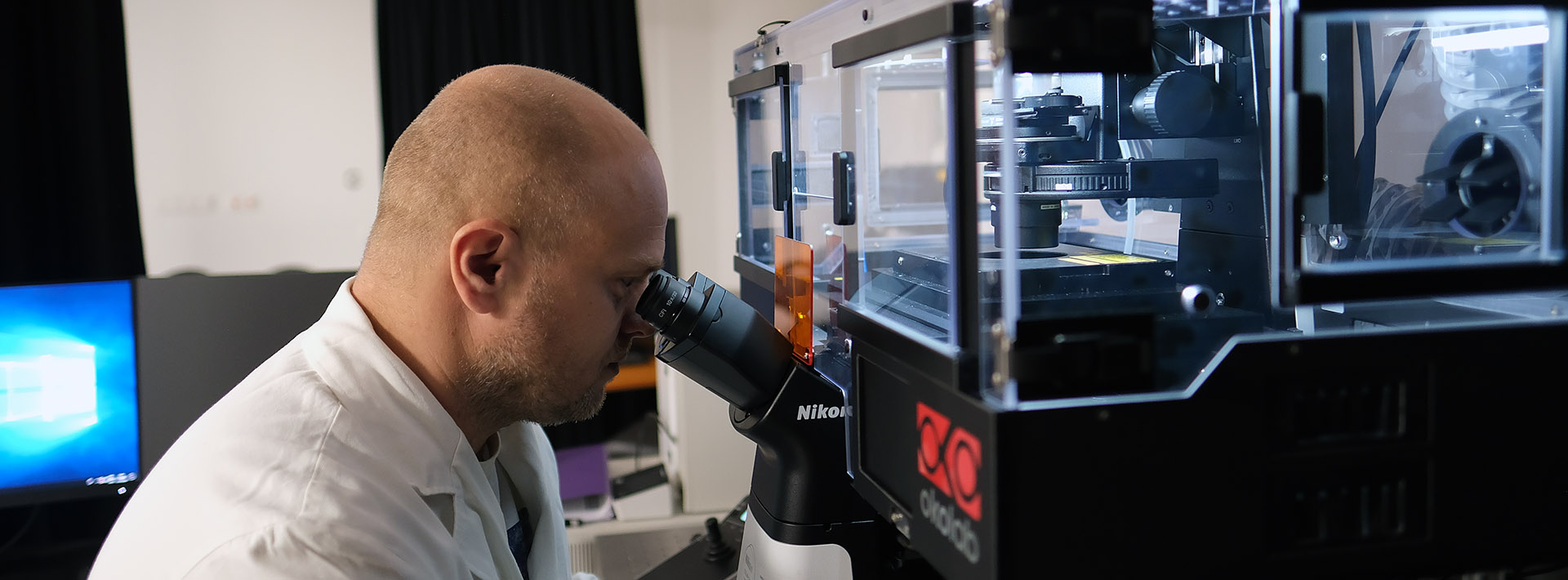Data
Official data in SubjectManager for the following academic year: 2024-2025
Course director
-
Zelena Dóra Tímea
professor,
Institute of Physiology -
Number of hours/semester
lectures: 0 hours
practices: 0 hours
seminars: 12 hours
total of: 12 hours
Subject data
- Code of subject: OSE-LS2-T
- 1 kredit
- Dentistry
- Elective modul
- spring
OSA-EF2-T parallel
Course headcount limitations
min. 5 – max. 24
Topic
The course is a consultation-type seminar related to the Physiology 2 course in groups of a maximum of 12 people. Six times during the semester, following the theme of the physiology lectures, we will help with the understanding and adequate preparation for the physiology final exams. During the lessons, following the needs of the students, we will discuss the problematic parts of the core material, and we will help the study of physiology with tests and problem-solving tasks. We recommend the course to dentistry, pharmacy, and general medicine students. The course starts in the 3rd week of the semester.
Lectures
Practices
Seminars
- 4. Endocrinology - Zelena Dóra Tímea
- 3. Endocrinology - Zelena Dóra Tímea
- 2. Endocrinology - Ráczné Mikó-Baráth Eszter
- 1. Endocrinology - Ráczné Mikó-Baráth Eszter
- 5. The spinal cord, postural reflexes, locomotion - Gálosi Rita
- 6. The spinal cord, postural reflexes, locomotion - Gálosi Rita
- 7. Central nervous regulation of motor functions. The vestibular system - Gálosi Rita
- 8. Central nervous regulation of motor functions. The vestibular system - Gálosi Rita
- 9. Sensory systems: Vision - Buzás Péter
- 10. Sensory functions: Vision - Buzás Péter
- 11. Hearing, olfaction, taste. Sleep. Vegetative functions - Buzásné Telkes Ildikó
- 12. Hearing, olfaction, taste. Sleep. Vegetative functions - Buzásné Telkes Ildikó
Reading material
Obligatory literature
John E. Hall & Michael E. Hall: Guyton and Hall Textbook of Medical Physiology (Elsevier), 14th Edition, 2020, ISBN: 0323597122 (Elsevier)
Literature developed by the Department
Notes
Recommended literature
Pocket Companion to Guyton and Hall Textbook of Medical Physiology (Guyton Physiology) 14th Edition by John E. Hall PhD, Michael E. Hall MD MSc. (2020)
Kim Barrett, Susan Barman, Jason Yuan, Heddwen Brooks Ganong's Review of Medical Physiology, McGraw-Hill Education 26th Edition (2019)
Thomas M. Jessell Steven A. Siegelbaum: Principles of Neural Science, Sixth Edition, 2021, ISBN: 9781259642234 (McGraw-Hill)
Conditions for acceptance of the semester
Oral presentation of the course material at a chosen time.
Mid-term exams
Class activity is included in the evaluation. We offer the mid-year grade based on mid-semester activity.
Making up for missed classes
The missed class is advised to be covered by joining another group.
Exam topics/questions
1. Acid-base balance regulation
2. Measurement and disturbances of the acid-base balance
3. Basic principles of humoral regulation
4. General characterization of the hypothalamic-pituitary system, neuropituitary gland
5. Growth hormone secretion and prolactin
6. Function of the adrenal cortex: synthesis and degradation of steroid hormones. Mineralocorticoids and their effects.
7. Glucocorticoids and their effects
8. Physiological mechanisms of stress
9. Internal secretory function of the pancreas, insulin and glucagon
10. Hormonal regulation of intermediate metabolism.
11. The function of adipose tissue. The basics of weight management.
12. Blood glucose measurement and its clinical relevance
13. Thyroid hormones: synthesis, regulation
14. Effects of thyroid hormones, hyperthyroidism and hypothyroidism
15. Hormonal regulation of calcium and phosphate balance
16. Male sexual functions. Physiology of coitus, fertilization and the onset of pregnancy
17. Physiology of Female Sexual Function
18. Endocrinological changes during pregnancy. The placenta and the fetal placental unit
19. Physiology of childbirth and breastfeeding
20. Regulation of sexual behavior. Parental behavior.
21. Development and growth
22. Puberty, menopause and aging.
23. Energiaforgalom, metabolism
24. Body temperature, fever
25. Peripheral and central regulation of body temperature
26. General features of the nervous system: organization and homeostasis of nervous tissue, nervous system
27. The spinal cord and its role in sensory, motor and integrative functions
28. Spinal cord reflexes: concept of reflex, classification and study of reflexes. Spinal cord damage
29. Cortical motor function and the pyramidal system. Central and peripheral paralysis.
30. The extrapyramidal system. Basal ganglia
31. How the labyrinth and vestibular nuclei work
32. Cerebellar function
33. The role of the brainstem in motor skills
34. Postural Coordination and Locomotion
35. Somatosensory functions. Epicritical and protopathic sensations.
36. Somatosensory pathways. Physiology of the thalamus and somatosensory cortex.
37. Physiology of pain, function of analgesic pathways.
38. Protection of the eyes. Intraocular pressure
39. Optics of the eye, refractive error
40. Retinal mechanisms
41. Field of vision and visual pathway.
42. Cortical mechanisms of vision
43. Colour perception, depth perception and their disorders
44. Oculomotor processes
45. Function of the outer and middle ear. Hearing tests
46. Function of the inner ear. Auditory pathways
47. Physiology of taste sensations
48. Physiology of smell
49. Methods of examination of the central nervous system
50. Electroencephalogram (EEG), evoked reactions
51. Regulation of Sleep-Wake
52. Biological rhythms. Regulation of the circadian rhythm.
53. Activation systems of the brain: reticular activation system and neurohormonal control, monoamines
54. Central regulation of autonomous functions
Examiners
Instructor / tutor of practices and seminars
- Buzás Péter
- Buzásné Telkes Ildikó
- Gálosi Rita
- Ráczné Mikó-Baráth Eszter
- Zelena Dóra Tímea
